Cosmetic surgery has soared in popularity in recent years, so it is important you are aware of the facts and myths associated with any procedure before you decide to delve in. Let’s begin with a definition:
What is cosmetic surgery?
Cosmetic surgery is a form of plastic surgery that aims to improve various aspects of your appearance, but it should be approached with caution. Be sure to take the time to do research about the doctor you are considering to verify their credentials and expertise before going under the knife. Some great resources to find highly trained plastic surgeons in your area are the American Board of Plastic Surgery, the American Society of Plastic Surgeons, and/or the American Society for Aesthetic Plastic Surgery. If your surgeon is not a member of these prestigious societies, he or she may not be a “real” plastic surgeon board certified by the American Board of Plastic Surgery. Board certified plastic surgeons perform cosmetic surgery of the face, breast, and body.
Below we discuss some of the main things you need to know about cosmetic surgery, including the different types available.
Different types of cosmetic surgery
Breast surgery
Women often opt for breast surgery when they want to increase or reduce their breast size, improve breast shape and symmetry, or lift the breast to have the appearance of more youthful breasts. Males also opt for breast surgery when they develop gynecomastia or enlargement of breast tissue of the chest. A breast reduction or liposuction helps treat this condition in men. Other forms of breast surgery include mastopexy, or a breast lift, breast enlargement or breast augmentation, or breast reduction.
Liposuction
This specific treatment has soared in popularity in the last 10 years. Liposuction uses hollow metal tubes, or thin cannulas, to break up and suction fat from various areas of the body, typically the breasts, abdomen, thighs, buttocks, backs of the arms, hips, and neck. Note that tools used in the procedure include ultrasound, mechanical, standard and laser devices which all tend to involve some form of suction of fat through a tube. There is a limit placed on the quantity of fat that can be safely removed.
Vulvovaginal surgery
Labiaplasty, labial reduction, or labia minora reduction, involves surgery of the labia minora or labia majora to improve the overall aesthetic appearance of the vagina. The aim of the surgery is to reduce elongated labia, usually as part of a vaginoplasty. This surgery improves the aesthetic appearance of the vagina and has very high patient satisfaction.
Abdominoplasty
Also known as a “tummy tuck”, this surgery firms and reshapes the abdomen. Excess fat and skin are removed from the middle and lower abdomen, with the aim of tightening the fascia and muscle of the abdominal wall. This surgery is a great option for a new, tight, and flat belly.
Buttock augmentation
Buttock augmentation is a form of cosmetic surgery that enhances the appearance of the buttocks by enlarging them and by reducing the size of the waist. This operation improves the hip to waist ratio, improving the curvature of the abdomen, waist, and buttock region. It’s typically known as the “Brazilian Butt Lift” and a surgeon will transfer fat to the buttock from the abdomen and thighs using liposuction techniques.
Rhinoplasty
Better known as a nose job, this cosmetic procedure involves the surgeon reshaping the patient’s nose to improve its appearance. It is also performed to help with breathing difficulties as well. The process can involve reshaping and reducing the size of the tip and reducing the bony hump at the upper aspect of the nose. This surgery can also improve the symmetry of the nose and straighten a crooked nose.
Before you consider any type of cosmetic surgery, there are some things you need to consider. We have listed some important tips below.
– Choose a high-quality plastic surgeon who is board certified by the American Board of Plastic Surgery and has a great reputation
– Ensure you have as much information about the procedure and weigh all the pros and cons before you commit
– Be aware of any complications or risks
– Choose the right time for surgery, for example, avoiding stressful situations or busy life periods as downtime may be required
We hope this guide has helped bring some clarification to the different types of cosmetic surgery available and how to ensure you are making the right choice.


















